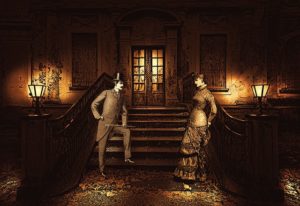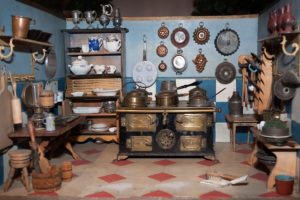The Miniaturist
By Jessie Burton
This book isn’t my usual vein of historical fiction. I’m partial to Tudor era drama whenever I delve into the genre. However, I did like The Miniaturist overall.
Its pace is slow, but the writing is solid and enjoyable. Nothing felt overly described or melodramatic. Sometimes the narrator, Nella, felt more like an observer to her own story than a character, but it wasn’t so bad that it put me off reading. I wish she’d had deeper characterization though.
More than likely, this review is going to be full of spoilers. It’s really hard to talk about this book fully without them. If you don’t want spoilers, please stop reading right now. Don’t go past this sentence.

Still here? Okay, let’s boogie.
So, first off, bury your gays, folks. And really, this is my biggest issue with The Miniaturist. Poor Johannes didn’t need to die. Not only was it wholly unnecessary to tie up loose ends in the plot, but it felt out of character for Johannes to get caught. This man was a merchant, well-versed in languages and cultures from all over the world. You’re telling me, to run away from the authorities, he packed a bag and walked out the door looking exactly like himself? And to his own boat, no less? Yeah, right. Johannes was depressed, not an idiot.
Jack was . . . weird. He went from a relatively friendly person to the most vindictive, cruel, and unhinged person at the drop of a hat. I think Burton meant to go for the “jilted lover” feel? But, uh, it didn’t work. Jack’s character just felt disjointed without any real explanation.
Loved Marin. No notes. Part of me wishes The Miniaturist was told from her POV rather than Nella’s. Regarding Marin’s fate, while it was sad and undeserved, it did feel hyper-realistic to the time, stresses, and lack of medical knowledge.

What about the Miniaturist themselves? When you really look at it, this book had very little to do with the Miniaturist, the person, at all. However, if you look at the book as a miniature of life (not a slice-of-life,) then the title makes more sense. It feels both misleading and satisfying at the same time. Intriguing, for sure.
From what I understand, the historical research was pretty good. I didn’t notice anything crazy out of place for the 17th century. I really appreciated the Dutch glossary in the back of the book. The cost summaries were also really neat!
A final note: reread the prologue after you finish the book! It really is worth it in context.
~ Anna
(Entry 34)